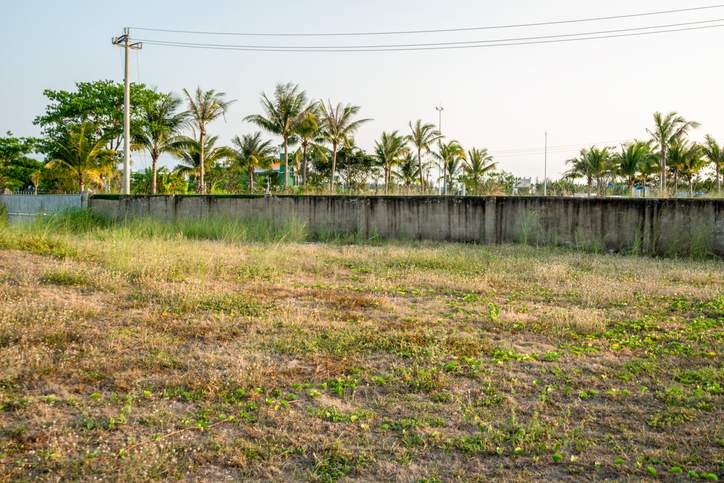If you were born in another country but live and work in the United States, you should know there are no barriers to buying a home. However, there can be some additional hurdles to clear and steps you’ll need to take. Here’s what you need to know about how to get a mortgage for non-U.S. citizens.
Key Takeaways:
- Noncitizens can get a mortgage to buy a home in the United States using a conventional, FHA, USDA, or foreign national loan.
- Noncitizens who are permanent residents should have an easier time getting a mortgage because lenders consider them less risky.
- It helps to have a credit history in the U.S. and a substantial down payment saved – though some lenders will allow borrowers to qualify using an international credit report.
Home Loan Options For Non-U.S. Citizens
You have a few loan options if you’re a non-U.S. citizen looking to buy a home.
Conventional Loans
Conventional loans are the most common type of mortgage and are not part of any government program. Conventional loans can either be conforming or nonconforming. Conforming loans meet federal requirements that allow lenders to sell the loan to Fannie Mae or Freddie Mac. Those requirements include limits on how much you can borrow. For 2024, these limits are $766,550 in most areas and $1,149,825 in specific high-cost areas. Nonconforming or jumbo loans in some way don’t meet the conforming loan standards, most often by exceeding the loan limit.
FHA Loans
FHA loans are issued by private lenders and guaranteed by the Federal Housing Administration. FHA loans allow for lower credit scores than conventional loans. You can get a loan with a credit score as low as 500 if you make a 10% down payment. If your score is at least 580, you can make a down payment as low as 3.5%. If you’re a noncitizen with poor credit and not much saved up for a down payment, an FHA loan may be cheaper than a conventional loan.
USDA Loans
USDA loans are issued by private lenders and backed by the U.S. Department of Agriculture. These loans are designed for low- to moderate-income borrowers buying homes in specific rural areas. USDA loans are available only to permanent U.S. residents with a minimum two-year work history.
Like FHA loans, USDA loans have looser eligibility restrictions than conventional loans. USDA loans also can be cheaper than FHA loans for eligible borrowers and require no down payment. You can use this tool to find out if you’re eligible.
Foreign National Loans
Foreign national loans are mortgages specifically for noncitizens who may not have a credit history in the United States. As a result, these loans tend to have looser residency restrictions. These loans also allow lenders to use foreign credit reports to review the creditworthiness of eligible borrowers. The downside is that these loans may require a larger down payment.
What’s Your Goal?
Buy A Home
Discover mortgage options that fit your unique financial needs.

Refinance
Refinance your mortgage to have more money for what matters.
Tap Into Equity
Use your home’s equity and unlock cash to achieve your goals.
Eligibility Requirements
Let’s look at the eligibility requirements that noncitizens must meet to get a mortgage in the United States.
“You will definitely need proof of legal status, like a visa or green card, plus employment verification, bank statements, and either a U.S. or international credit history,” says Odest Riley, broker-owner of Twenty-Four Seven Property Management in Los Angeles. “With a little preparation, noncitizens can navigate the mortgage process just like anyone else.”
1. Verifiable Residency Status
Lenders will require you to provide proof of your legal residency status. Let’s look at how residency status affects your ability to get a mortgage – and the terms you’re offered.
- Permanent residents. Green card holders in the U.S. permanently are considered less risky to lenders because they’ve taken the steps to stay in the country for good.
- Nonpermanent residents. Noncitizens who have visas to work in the U.S. will typically need to provide employment authorization documents and proof of stable income.
- DACA recipients. Deferred Action for Childhood Arrivals is a policy that protects undocumented immigrants who come to the U.S. as children. DACA recipients can get approved for most mortgages if they are lawful permanent residents.
- Foreign investors. Foreign investors who don’t live in the U.S. but want to invest in property can do so using a debt-service coverage ratio loan, which uses the property’s income potential as a qualifying factor.
2. Documents Required
To get a mortgage, you’ll have to document your financial situation and citizenship. Expect to be asked for the following documents:
- Passport
- Visa
- Proof of income, like pay stubs or tax returns
- Bank statements
- Utility bills
- Rental history
3. Established Credit History
It helps to have a credit history in the U.S. before applying for a home loan. Unfortunately, you usually can’t transfer your credit report from your original country. There are some cases where a lender can do a nontraditional credit check with foreign credit information, but you’ll typically need to convert your existing credit to U.S. credit. Not all lenders offer credit conversion. Some lenders will also require you to take a homeownership education course.
To convert foreign credit to U.S. credit, you’ll typically need to provide the following:
- Your U.S. Social Security number
- Pay stubs or other proof of income
- Four credit references with at least a two-year history
- Bank statements
4. Verifiable Income And Employment
Lenders will want proof that you’re employed and have enough income to afford a mortgage. Employment verification is especially important for noncitizens because your employment could affect your residency status. Be prepared to provide the following documents.
- Pay stubs
- W-2 forms or 1099 forms
- Bank statements
- Retirement account statements
- Investment account statements
5. Meet Down Payment Requirements
Lenders often require that you make a down payment to get a mortgage. The minimum down payment required will depend on the type of loan:
- Conventional loan: 3%
- FHA loan: 3.5%
- VA loan: No down payment requirement
- USDA loan: No down payment requirement
Ready To Become A Homeowner?
Get matched with a lender that can help you find the right mortgage.
Mortgage Process For Foreign Nationals
If you’re a citizen of another country, it will be easier to get approved for a mortgage with good terms if you’re also a U.S. citizen. Foreign nationals who are not citizens of the U.S. are considered at higher risk because their immigration or residency status could change. If they decide to skip town and return to their home country, lenders have fewer options to hold them accountable. As a result, lenders charge noncitizen borrowers a higher interest rate. They may require a down payment as high as 30% to 50%.
Potential Hurdles
Here are some potential restrictions for getting a mortgage as a non-U.S. citizen:
- You’ll need a Social Security number.
- Depending on your residency status, you may have to pay a higher interest rate or make a larger down payment.
- You may need to provide additional documentation.
- Tax rules still apply if you plan on renting out the property,
- If you have complete diplomatic immunity, you aren’t subject to U.S. law, so you won’t qualify.
Take The First Step To Buying A Home
Find a lender that will work with your unique financial situation.
Tips For Successfully Buying A House
Let’s take a look at some that non-U.S. residents can take that can help you buy a home:
- Improve your credit score. Your credit score is a significant factor that affects whether you get approved for a mortgage and the terms you’re offered. If your credit score is low or you haven’t built much credit in the U.S., you can improve it by paying bills on time and reducing your debts.
- Save a significant down payment. Depending on your loan type and residency status, you may have to make a larger down payment to get approved. The upside is that a larger down payment also helps you get a lower interest rate and monthly payments.
- Work with the right lender. Some lenders have more options for non-U.S. citizen home buyers. Be sure to shop around and see the loan options that are available to you.
- Seek legal and financial advice. You don’t have to navigate the process alone. Financial advisors and real estate attorneys can help you understand your options.
FAQ
Here are answers to some frequently asked questions about home loans for noncitizen residents.
The Bottom Line
The good news is that non-U.S. citizens can get a mortgage to buy a home in the United States. However, the process can be a little more complicated and require more paperwork. Three major factors affecting your ability to get financing and the terms you’re offered are your residency status, credit history, and down payment amount. In general, permanent residents with a green card, good credit, and a sizable down payment will have an easier time getting a mortgage.

Rory Arnold
Rory Arnold is a Los Angeles-based writer who has contributed to a variety of publications, including Quicken Loans, LowerMyBills, Ranker, Earth.com and JerseyDigs. He has also been quoted in The Atlantic. Rory received his Bachelor of Science in Media, Culture and Communication from New York University. He also completed the SoFi/Coursera Fundamentals of Personal Finance Specialization consisting of five courses: Introduction to Personal Finance, Saving Money for the Future, Managing Debt, Fundamentals of Investing, and Risk Management in Personal Finance.












